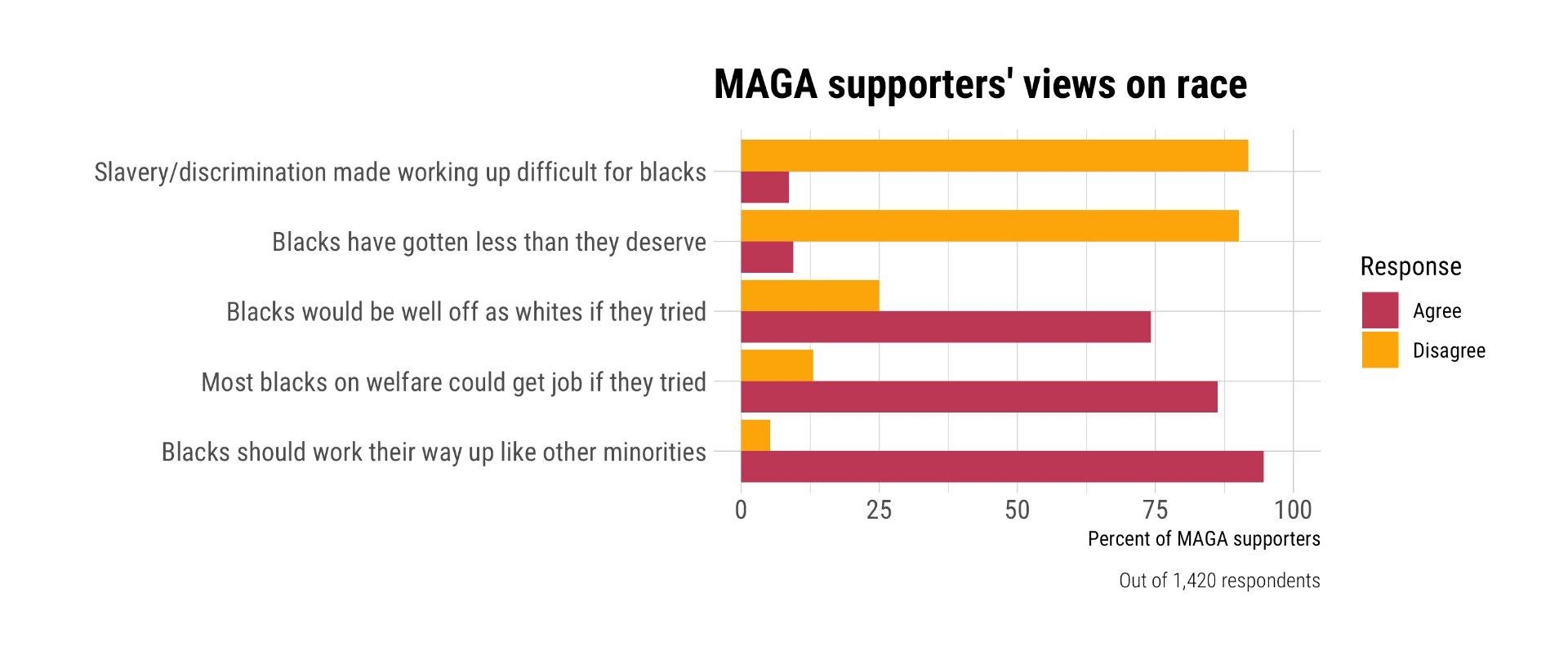Click on an image for a larger display
 |
 |
 |
“MAGA,” as we’ve already pointed out, is an acronym for: Make America Great Again. This begs the question: what’s wrong with America? Given the demography of the movement, we suspect “making America great again” has something to do with returning to the racist, sexist, nativist times in the past, prior to the civil rights movement, the women’s movement, and the Hart-Celler Immigration Act of 1965. If this is true, we should see this reflected in the data, and we do. We begin with the topic of racism, using questions that capture what is commonly referred to as racial resentment. We employ five items, using an agree/disagree format. When asked whether or not “slavery and discrimination makes it difficult for Blacks to work their way up,” better than 90 percent of movement supporters disagree. Likewise, when queried on whether or not Blacks have received less than they deserve, roughly 90 percent, again, disagree. However, when asked whether or not “Blacks would be as well off as Whites if they tried,” if “Most Blacks on welfare could get a job if they tried,” and whether “Blacks should work their way up like other minorities,” no fewer than roughly 75 percent of movement supporters agree. (Again, comparable data from 2020 is not yet available. Given the increased salience of race in 2020, relative to election cycles of the past, we don’t think it appropriate to use data from even 2016.)
Does such antipathy extend to immigrants and women? Yes, it does. Beginning with immigrants, nativism runs fairly strong within the movement. Roughly 85 percent of respondents believe that “Immigration is changing the culture for the worse,” and believe that “Immigrants refuse to abide by our laws.” However, when it comes to whether or not the “Economy is strengthened by the hard work or Latino immigrants,” roughly 60 percent agree. We suspect the results for the third question are influenced by stereotypes of Latino immigrants as landscapers and domestics, that is, in subordinate, less-threatening roles. While the results are less dramatic when it comes to sexism, they remain robust. Consider the four questions we used to assess sexism: (1) Women interpret innocent remarks as sexist; (2) Women are seeking special favors; (3) Feminists make unreasonable demands of men; and (4) Feminists are seeking more power than men. Of these questions, only once does fewer than 75 percent of movement supporters fail to agree. On the one occasion that it does, it’s when 62 percent agree with the claim that women tend to interpret “innocent” remarks as sexist.